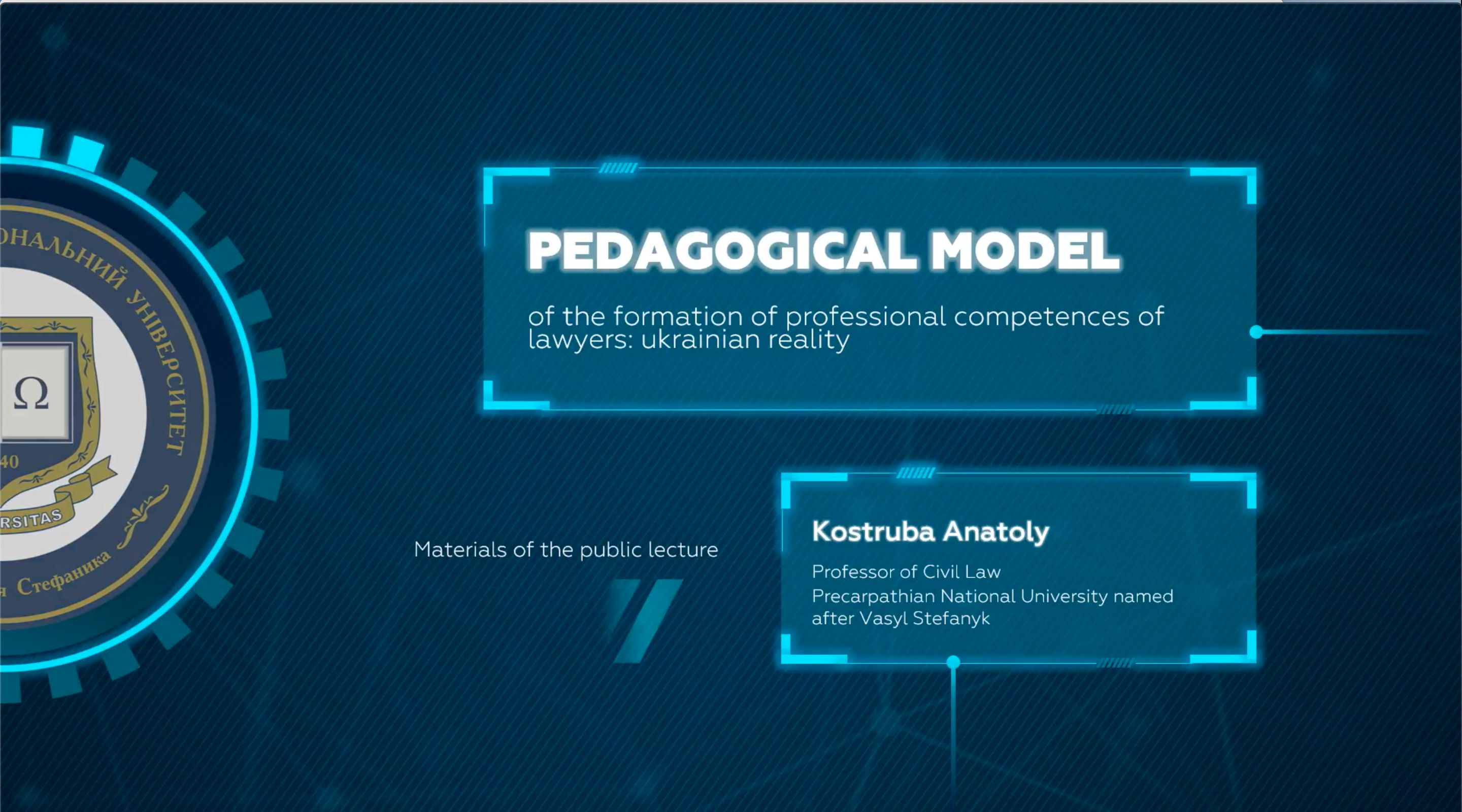Pedagogical Model of The Formation of Professional Competence of Lawyer: Ukrainian Reality
Author:
Prof. Anatoliy Kostrub
Doctor of Law (Dr. habil.), Professor
Civil Law Department,
Ivano-Frankivsk, Ukraine.
The rapid development of information technologies has led to the global computerization of society. As a result of this phenomenon in the field of education, the developed data processing environment, modular assembly of information systems (a combination of different types of architectural solutions within the same complex) was formed. Consequently, the process of knowledge accumulation for the development of professional competence skills gradually changes the form of implementation. Well-known goals of higher education that are discovered in such elements as knowledge, understanding, forms of their gaining are subject to changes. The foregoing calls for the change in the educational paradigm one of the components of which, in our opinion, should be the transition to educational goals of another qualitative type in the cognitive field, including the development of applied professional legal skills, development of critical thinking, etc. This study contains the formed algorithm of professional training of the future lawyer which provides for the production of a model for the formation of professional competences of the lawyer as the basic element. Such a pedagogical model shall be based on the organic unity of theoretical, practical, psychophysical training, which in turn will provide the level of professional socialization. The model is based on four segments: target, meaningful, didactic and evaluation and productive. The study of the process of the formation of professional competences of the lawyer using the established model has made it possible to identify shortcomings in the content and didactic segments, which consist in an overload of curricula with unnecessary disciplines of humanitarian content and lack of applied component in the educational process.
Link of the video:

